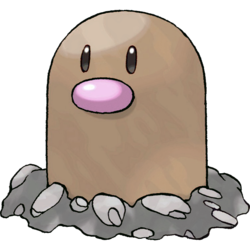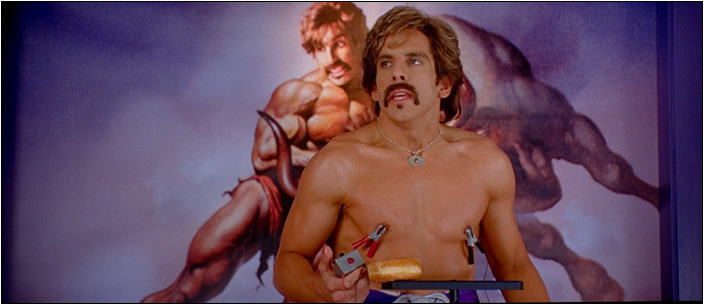I’m going to dissect the two biggest reasons people screw up the recipe mentioned last letter: ENVIRONMENT >> INFORMATION >> TRIGGERS CHANGE (THAT THE BODY CAN CONCEPTUALIZE AS BENEFICIAL FROM A BIOLOGICAL FITNESS STANDPOINT) Things we dream of having as an aerohead, like a low body fat percentage, the perfect amount of muscle, relative strength, [...]

I’m going to dissect the two biggest reasons people screw up the recipe mentioned last letter:
- ENVIRONMENT >>
- INFORMATION >>
- TRIGGERS CHANGE (THAT THE BODY CAN CONCEPTUALIZE AS BENEFICIAL FROM A BIOLOGICAL FITNESS STANDPOINT)
Things we dream of having as an aerohead, like a low body fat percentage, the perfect amount of muscle, relative strength, athleticism, power, the ability to crochet afghans, kittens, and slippers…
…come from convincing our bodies that having them, building them, <whatevering> them are in their best biological interest.
Let’s mosey on.
Where do most people screw up?
Not exactly Mr. Secret here, as there are only, like, two ingredients to the recipe.
Environment. Uhh. Information. Uhhh. That’s it.
Environment sends the information, so let’s talk about the environment.
What the heck does “environment” even mean? When I think of the word “environment,” I think of dusty polluted cities. But environment is SO MUCH more.
I used to fiend on Higher Faster Sports. Kelly Baggett once wrote about the 3 S’s of muscle building: stimulate, supply, and signal.
The idea most people have of “environment” as it relates to training is similar to the 3 S’s.
Stimulation is your training. This is hitting the gym and lifting weights, which sends a love note to your body.
Dear System 1,
These muscles? These bones? Tendons? The rest of the connective tissue? Nervous system? Et cetera…
I’m sure you get the point. I need those things to be better. See? I’m using them! They’re important!
By golly, I mean, this iron stuff can kill me! Maybe, just maybe, it’s in your best biological interest to do some upgrading.
Who knows? Next time, these fancy iron discs might crush my soul.
Love,
System 2
Supply is your eating. Another love note.
Dear System I,
Remember all that training? Remember the weight almost crushing us? Man. That was intense.
It’s probably a good idea to make yourself a little better, ‘yaknow, make it easier to handle those iron things next time around.
I know one of the ways you can do this is by building more muscle. Bigger engine, right? Like swapping out a V4 for a V8.
If this is something you’re thinking about, here are some things you’re gonna’ need for the building process.
They’ll be floating around for you. Often. Don’t be afraid to use them. I got lots in reserve. Don’t be shy. Build.
Signaling, according to Kelly, is more of an epi/genetic issue. Boys during puberty gain muscle all the while eating Pop-Tarts and sleeping two hours every night. Because, hormones.
Of the three, signaling is most powerful. If your body doesn’t signal, then neither stimulation nor supply matter. If your body DOES signal, then stimulation and supply are less crucial to nail down.
Don’t get me wrong. Almost no one scouring the Internet for fitness advice is working with on point signaling. The whole purpose of stimulation and supply is to CHANGE signaling, albeit a roundabout way.
(The more direct route to change signaling = steroids. But I have zero experience with steroids, so you’re listening to the wrong guy if this is something you’re interested in.)
So assume a sedentary goober. His signaling = store extra calories and nutrients as fat. But then you start stimulating and supplying a certain way. Then you do it more. And more. And more. You reinforce new stimulation and supply. And then signaling changes to = store extra calories and nutrients as muscle.
I mention the 3 S’s because stimulation and supply is about as deep into “environment” as we think at first. And even beyond “at first.” More like: until you read up on evolutionary biology.
Ask an obese person how to lose fat and you’ll probably get an answer along the line of, “Uhh. I have to exercise and move more. I have to eat less.”
AKA: I have to stimulate (differently) and I have to supply (differently).
Digging deeper than stimulation and supply is rarely done. But, oh, we’re digging. DIGLETT, I CHOOSE YOU!

Stimulation and supply are important. Very important. Perhaps MOST important…in spirit. But there are more pieces to the environment-information puzzle.
Your body is digesting information from the world 24/7, not just when you’re training or when you’re eating.
So, to Kelly’s 3 S’s, I add a 4th S: soul.
Soul is the bulk of your life BEYOND training and eating, all of which silently influences signaling. How well and how much do you sleep? How often are you stressed (distress)?
(It’s SssssSsssSsssizzlin’ in here.)
Soul, perhaps said more abruptly, is the smack across the head you need in order to see yourself as, uhh, a human. Like. A complete human. Thing. Creature.
Because I’m willing to bet on something, something that’s a sign of NOT understanding what it means to be human.
I’m betting you’re suffering from domain dependence.
My favorite example of domain dependence comes from Nassim Taleb. Here’s the gist of something he said, wrapped up in my own little story.
Fred is trying to lose some fat. Fred works in an office. Fred buys a gym membership.
Fred is good about going to the gym and walking on the treadmill. Every day at 5PM he starts his one hour walk.
Good for Fred.
Errr, for now.
Because when you dig deeper into Fred’s story, you uncover something…
Fred ignores every chance in his REAL life to be active.
Fred parks close to his office, so he doesn’t have to walk. Fred takes the elevator, not the stairs. Fred even takes the escalator to the front doors of his gym.
Fred does all of these things because he sees the gym as a different domain than “real life.” He doesn’t connect the dots and think:
If I walked to and from work, that’d be twenty minutes of activity. Then if I walked to lunch, that’d be another ten. If I took the stairs both times, that’d be another ten…
He only sees himself as an “exercising” person in the gym. At all other hours, he’s dead flesh.
This is domain dependence—the idea of this and that only mattering, happening, or counting within a certain domain.
I’m in the gym. The gym is where I exercise. The gym is where I burn fat. The gym is where I build muscle. I’m THIS person in the gym…
…but I’m THAT person when I’m not in the gym. I don’t exercise when I’m not in the gym. My body doesn’t burn fat when I’m not in the gym. My body shuts off, physically, when I’m not in the gym.
Unfortunately, System 1 cares zero about your artificial domains. Zero.

To System 1, there’s no difference between taking the stairs at 9AM in your suit and tie on your way up to your office and taking the stairs at 5PM in your athletic, cut off shirt, and sneakers on the StairMaster inside the gym you pay $47 a month to be a member of, even though there are stairs (like, actual ones that you can walk on), ohh, I don’t know…EVERYWHERE. Easy to access. For free.
ANYWAY…
Compartmentalizing into domains affords us the freedom of ignorance to the vastness of environment.
Story time, part deux.
Sitting in front of the TV in Pittsburgh is a boy named Anthony. Anthony is brother to Antonio. Antonio lives in Mexico. They were separated at birth. Never met one another.
Anthony, being American raised, fears death. A lot. To the point of him having trouble sleeping every night when he’s a kid.
Sounds harmless. But the wonky thing about human physiology: the stress response Anthony’ll go through during these stressful times is the same stress response he’d go through as if he were being chased by a dinosaur.
This is Why Zebra’s Don’t Get Ulcers 101. Extreme psychological distress…for reasons only a stinky System 2 human can foreshadow. No zebra contemplates its own death or worries about the interest rate on a thirty year mortgage.
So Anthony is a teeming ball of distress hormones throughout his young life. Probably has anxiety. Probably takes everything (including his writing, later in life) way too seriously. Probably has trouble making decisions. Probably is a pesimmist. Probably like Dragon Ball Z. Probably’ll grow his hair long…
Antonio is a little different than Anthony. He’s not afraid of death. Mexican culture celebrates death.
Long live Día de Muertos!
(Do you realize what just happened?)
So those hundreds of stressful impressions Anthony experiences? Antonio doesn’t experience them.
So the physiology of Anthony and Antonio can spat out completely different because of cultural belief.
We’re shaped by our environment in ways we don’t even think about.
- Why do you eat at the times you eat?
- Why do you eat certain foods for breakfast, but not for dinner?
- Why do you go to sleep when you go to sleep?
- Why is some food comforting and others not?
- Why is the sky blue?
- Would you eat the moon if it were made of ribs?
These things aren’t written into humanity. They are learned from your environment.
Now, let’s bring it down to a smooth jazz vibe.
This all sounds pretty voodoo. I’m not saying you have to map out all 24 hours of your day or that undergoing through some distress is going to set you up the bomb.
BUT…
BUTT…
BUTTS…
These sticky matters of culture seep into the ooey gooey cream filled center of BEHAVIOR modification.
“Uhh. I have to exercise and move more. I have to eat less.”
Yes, you know what you have to do. A lot of people do. But do they ACTUALLY DO what they know they should do?
The tough part is, of course, changing your BEHAVIORS, doing things you know you should do with consistency. Without feeling like White Goodman.

And then, of course, there is the absolutely weird world of psychological quirks that make it seem like the universe is conspiring against you.
- If you watch the news (see depressing stuff), you’re more likely to stray from the path.
- If you try remembering a bunch of stuff (like, say, a long telephone number), you’re more likely to eat junk food.
- If you exercise (do something you perceive as positive), you’re more likely morally license (in other words: eat) junk food later.
And now you know why I say screwing my head on tight was just as important (if not more) than any fancy training technique I’ve come to learn. Behavior hijacking is a topic in and of itself, and I have to pull the guillotine on it for now.
Point being: your body is constantly searching for information is 24/7 and your environment plays a big role in what ends up happening. Environment isn’t just the physical space around you.
Ever see The Matrix? The falling neon green letters? It’s like that. You’re reading those neon letters around you every second of every day.
…but it’s also reflective. When you look in the mirror, you are those letters, too.
And I just realized how off topic I’ve stayed. I didn’t talk about what I was supposed to talk about.
But I’ve had enough for now.
Perhaps we’ll just label this as the first screw up: ignoring the rabbit hole of environment.
And I don’t want to leave you completely empty handed. I’ll talk about some behavioral psychology later (it’s inevitable). But if this is something you struggle with or are interested in, here’s something to chew on until I finish the next letter.
We’re all tricked by our environment. Even if we “know it” in our head, most of the time we have way too much on our mind to remember it and act on it. That’s why it’s easier to change our environment than our mind.
Dr. Brian Wansink, Mindless Eating